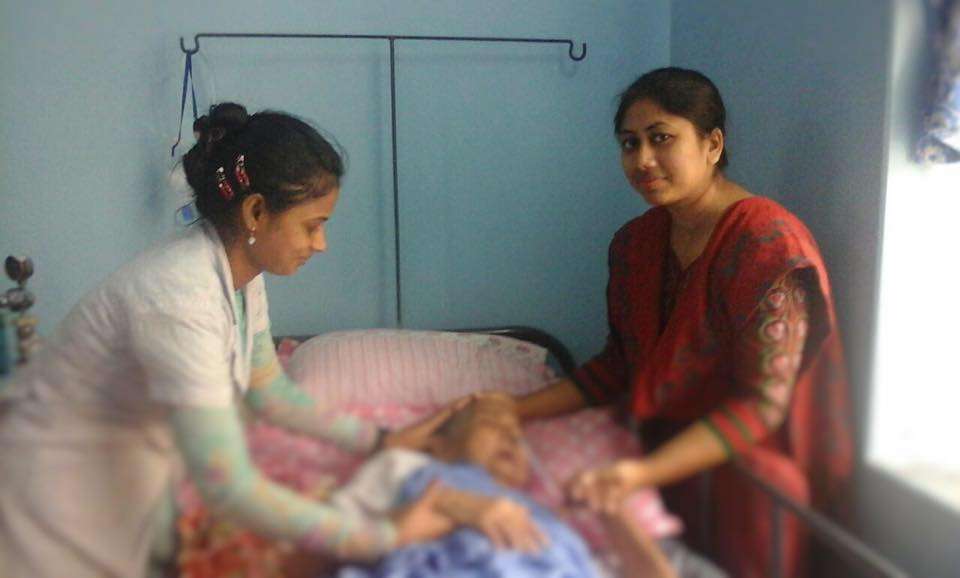She spends long hours each day working at the homes of people and their families needing palliative care, and after duty she returns to her own home.
Shika’s sister, Ritu Halder, also works as a palliative home care nurse in the same organisation. Sometimes the sisters have no time for contact with each other while they rest at home.
Most of their time is spent taking care of people at the end of life their lives, mostly with a diagnosis of cancer.
As soon as one person dies, she is assigned a different case, and starts to provide care for a different person. She takes care of people one by one, who all will die under her care.
It is so painful that no one will get well by her care.
Sometimes she develops a very close bond with someone under her care. She cries with the family when the person who was ill eventually dies.
Sometimes she asks herself: Is it worth the stress to work in palliative home care?
Hospice Bangladesh is a home and palliative care centre, and the only organisation providing a 24/7 home care service within Dhaka.
It has a team of 27 palliative home care nurses who are well trained in palliative care through the organisation itself.
They provide end of life care service within Dhaka. Along with the stress associated with burnout, they face logistical challenges. For instance, navigating through the city’s traffic is the main constrain of their home visit, as it takes up a huge amount of their time.
Though the nurses’ resources are limited, the number of palliative care patients in Dhaka is increasing day by day. As an employer, Hospice Bangladesh is aware of the risk of burnout, and the supervisors closely look after their nurses’ mental and social health.
Burnout can impair the quality of care delivered to patients as well as have serious consequences for the personal life of the carer.
The prevalence of burnout can be reduced by effective health care teams that provide clinical and emotional support for team members.
Research has said that palliative care nurses have reported that poor relationships with other team members are a major source of stress and typically arise from poorly defined roles.
Individuals who have a greater level of autonomy in their job experience less burnout, and it may be possible to reconfigure teams to optimise the contribution of each member.[1]
To show their appreciation for their nurses, Hospice Bangladesh have arranged a monthly get-together and Gala Dinner for their nurses. These events also provide an opportunity for the nurses to talk informally and to share their feelings with the other team members.
The events have a positive effect on the nurses’ mental and social wellbeing. It is an opportunity for them to ‘refuel’ and to feel supported and connected.
Besides the positive effect of the informal communication, these monthly get-togethers let the nurses know that they are valued family members in the organisation.
So, when they are faced any problem, they are better able to share that with their colleagues and supervisors.
In addition, Hospice Bangladesh also holds a weekly nurses’ counselling for nurse who feel depressed due to the death of a patient.
We need more focus on and to give more effort to prevent the burn out of nurses like Shika and Ritu, because they are the main pillar of our palliative home care service.



